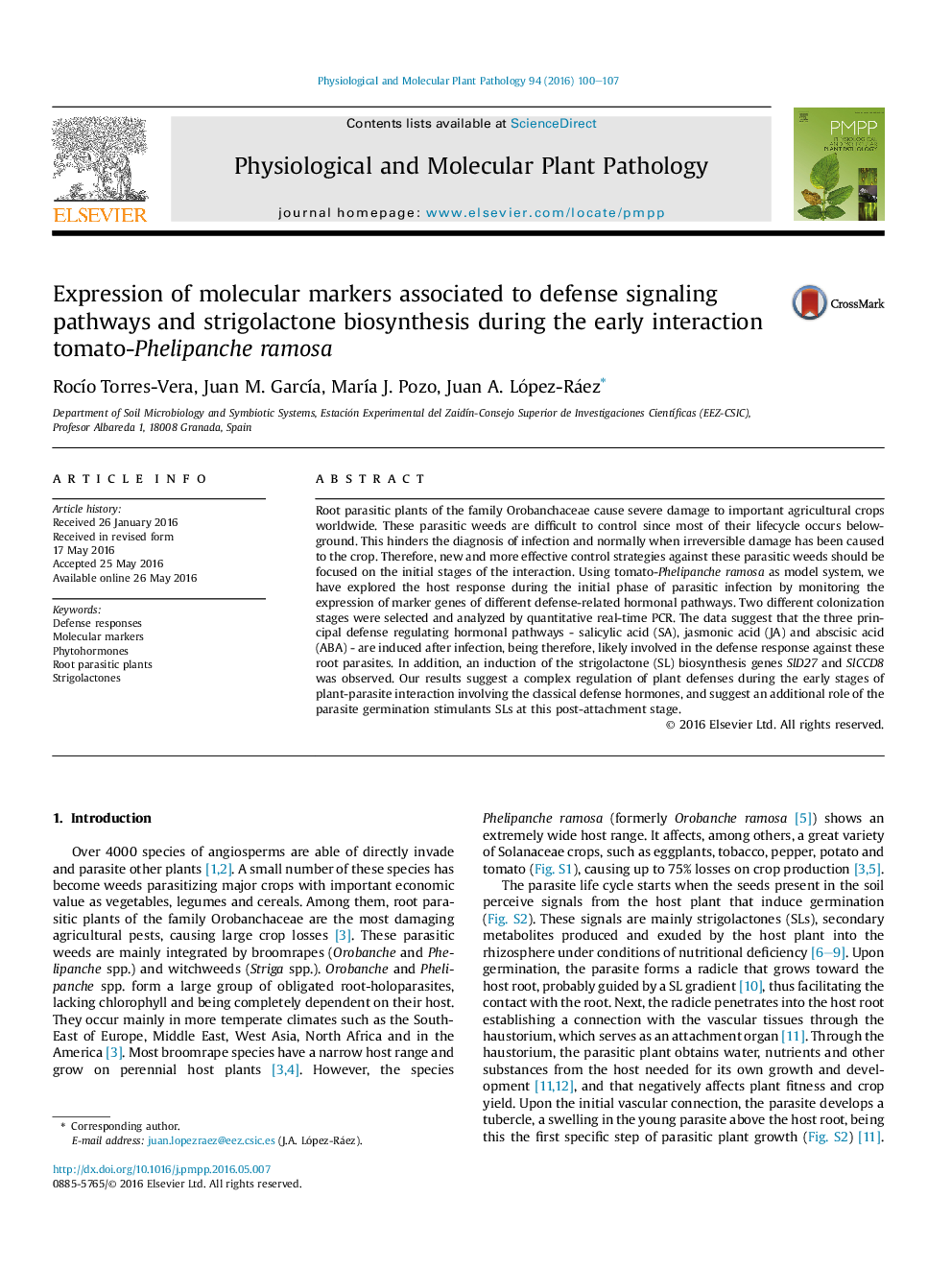| Article ID | Journal | Published Year | Pages | File Type |
|---|---|---|---|---|
| 2836202 | Physiological and Molecular Plant Pathology | 2016 | 8 Pages |
•SA, JA and ABA are involved in defense responses against root parasitic weeds.•SL biosynthesis genes are induced at early stages of tomato-P. ramosa interaction.•SLs might play an additional role during the host-parasite post-attachment stage.
Root parasitic plants of the family Orobanchaceae cause severe damage to important agricultural crops worldwide. These parasitic weeds are difficult to control since most of their lifecycle occurs belowground. This hinders the diagnosis of infection and normally when irreversible damage has been caused to the crop. Therefore, new and more effective control strategies against these parasitic weeds should be focused on the initial stages of the interaction. Using tomato-Phelipanche ramosa as model system, we have explored the host response during the initial phase of parasitic infection by monitoring the expression of marker genes of different defense-related hormonal pathways. Two different colonization stages were selected and analyzed by quantitative real-time PCR. The data suggest that the three principal defense regulating hormonal pathways - salicylic acid (SA), jasmonic acid (JA) and abscisic acid (ABA) - are induced after infection, being therefore, likely involved in the defense response against these root parasites. In addition, an induction of the strigolactone (SL) biosynthesis genes SlD27 and SlCCD8 was observed. Our results suggest a complex regulation of plant defenses during the early stages of plant-parasite interaction involving the classical defense hormones, and suggest an additional role of the parasite germination stimulants SLs at this post-attachment stage.
